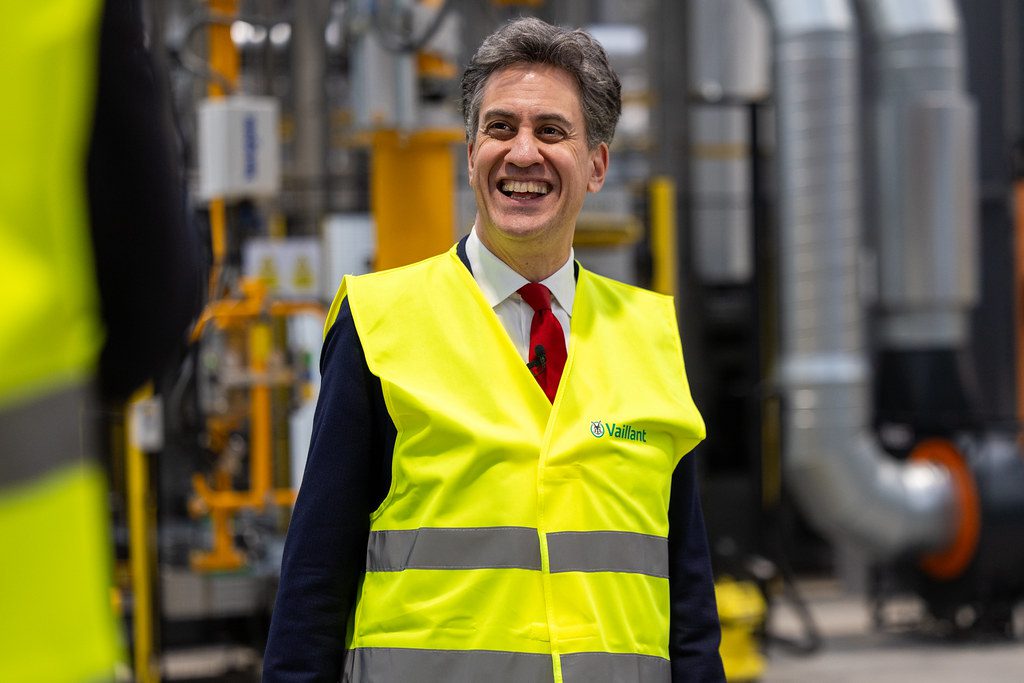The Department for Energy Security and Net Zero has today announced the development of two new carbon capture facilities, as part of the government’s mission to achieve net zero by 2050.
It is hoped that the UK’s first carbon capture-enabled cement plant in Flintshire, north Wales, and one of the world’s first carbon capture-enabled waste-to-energy facilities in Ellesmere Port, Cheshire will remove 1.2 million tonnes of carbon from the atmosphere every year.
These projects are part of the government’s new industrial strategy, with more than £9 billion being allocated to carbon capture projects during June’s spending review.
The Wales and Cheshire facilities will form part of the HyNet carbon capture and storage network that was announced in April, which will see millions of tonnes of carbon captured before being transferred to and stored in a facility in Liverpool Bay.
It is hoped that today’s newly announced projects will help boost employment prospects in north Wales and north-west England, with Energy Minister Michael Shanks saying that they will ‘directly support 500 skilled jobs, as part of the 2,800 jobs across the wider HyNet network.’
Shanks also added that today’s announcement shows that the government is ‘positioning Britain as a global leader on net zero’ and that the projects will help to power ‘Britain’s reindustrialisation.’
Meanwhile, Simon Willis, CEO of Heidelburg Materials, the developer of the north Wales site, described the upcoming project as ‘fantastic news’ for the whole carbon capture industry and seemed confident about its success, saying that the facility will be a ‘world-leader’ that will help ‘position the UK as a global force at the forefront of this technology.’
And the Chief Executive of Encyclis, who will be developing the site in Cheshire, Mark Burrows-Smith said that the UK has a ‘once-in-a-lifetime opportunity to begin decarbonising waste.’
The Chief Executive of the Low Carbon Contracts Company, Neil McDermott, also praised the projects, emphasising that they represent a major step toward decarbonising Britain’s most challenging industries, demonstrating ‘the critical role carbon capture, utilisation and storage (CCUS) will play in cutting emissions from heavy industry and energy-from-waste.” He also said that his company’s decision to invest in the projects were a vote of confidence in the sector and would hopefully pave the way for investment from other firms.
One of the main aims of such carbon capture products is the preservation of carbon intensive industries. Sectors such as cement production and waste management are incredibly hard, if not impossible, to decarbonise, and thus carbon capture is seen as the only viable way to reduce emissions. The government hopes that through projects such as those announced today, they can forge a cleaner future for carbon-intensive sectors and secure the jobs of the thousands of people working in them.
However, there is a risk that with increased focus on carbon capture, efforts to reduce carbon emissions at their source or to transition to cleaner manufacturing methods will be neglected. Whilst there will be some industries where there are no other options, care will have to be taken to ensure that carbon capture and storage is not just seen as a substitute for greener production processes.
For local communities, the projects offer not just employment but also the promise of cleaner air. Ashley Spruce, a current Environmental Science student and future Environmental Manager at the site in Cheshire described the opportunity as “an excellent step for the industry” and said she was proud to be involved in the UK’s first energy-from-waste plant with on-site carbon capture. Her comments reflect growing enthusiasm among young professionals for careers that combine cutting-edge technology with tangible environmental benefits, with DESNZ polling finding that those aged 25 to 34 are most likely to be supportive of renewable energy programmes.
As construction gets underway, today’s newly announced projects are expected to act as flagship examples of British innovation and collaboration between government, industry, and regional stakeholders. If successful, they could unlock export opportunities for UK-based engineering and technology firms, as, despite backlash from American President Donald Trump, countries across the world take steps towards net zero emissions and clean, renewable energy.
Additionally, if the projects are successful, then more may follow as part of the government’s long-term industrial and climate strategies, creating thousands more jobs and improving air quality cleaner across the country.
However, as we have seen with many recent British infrastructure projects, such as HS2 and Hinkley Point C, success is far from guaranteed. Delays, cost overruns, and shifting political priorities have all hampered previous large-scale infrastructure efforts, and carbon capture could face similar challenges if planning, regulation, and funding are not managed carefully.
Nevertheless, today’s announcement is the latest in a series from the government that are showing, at a time where a sense of doom and gloom around Britain is often inescapable, there is some hope for the future, and carbon capture could be a key step towards the government’s goals of achieving net zero and making Britain a clean energy ‘superpower.’




